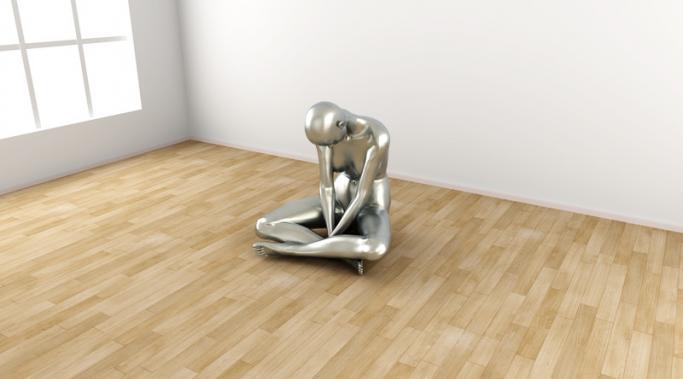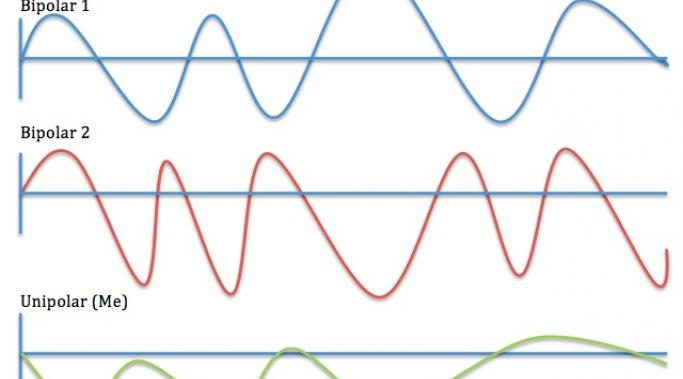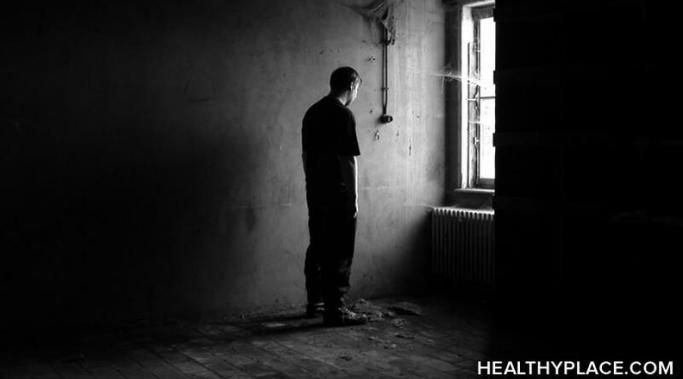Whether you are a depressed woman facing what could be several years of menopausal symptoms or a spouse/partner living with said woman, there will definitely be challenges. Depression on its own is bad enough, but add the complications of menopause to it and you get a veritable soup of sorrows.
Depression Symptoms
Oversleeping is my way out of depression. That's not so odd seeing that sleep, whether it is too much or too little, can be a symptom of depression. For me, I could never get enough sleep. That is often still the case, a keen reminder that I must always be aware of the symptoms of depression that affect me. Depression makes me want to oversleep to numb the pain.
It’s surprising how quickly depression's ups and downs can get you. It’s almost as if, you’re going along feeling pretty good and then WHAM, depression slams into you and says, “Now, now… you have chronic depression, remember? You’re not allowed to feel too good.” That’s the depression roller coaster.
Despite my own depression and experiences with anxiety and panic over the years, my knowledge of bipolar disorder was very limited. I knew about bipolar disorder and knew about the mood severities associated with it. But, it wasn’t until two years ago, when Catherine Zeta-Jones came out to the public about her battle with bipolar 2 that I even knew there was a bipolar TWO.
Talk about depression? Why? It’s no secret that the stigma of depression (and other mental illnesses) can be debilitating. Hiding the reason we are sick takes as much out of us as the sickness itself. Imagine a world where we could freely tell our loved ones, friends, co-workers and bosses the truth. Imagine a world where we could talk about depression.
When you have chronic depression, a depressive episode can rear its ugly head unexpectedly. You’re just going through your days, living your life, managing your depression as best you can and then . . . you feel the decline. This happened to me this week, surprising me because I had just survived a brief dip in my mood in early May. I wasn’t expecting this depressive episode so soon after the last.
If the signs and symptoms of depression were detected early in a young person’s life, would it make a difference? (Symptoms of depression in teens and children)
Teenage Depression or Normal Teenage Behavior?
I was a moody teen… is there any other kind of teen? The sudden outbursts, melancholy and disinterest in teenagers is often attributed to or described as bad-tempered, sulky, hormonal, bitchy, dramatic. The list is endless. Regardless of gender, each teenager must survive his/her own brand of pubescent purgatory.
Depression often leads to thoughts of suicide, or in the most dire of cases, taking one’s own life.
Around this time last year, in April of 2012, just as I was coming out of my last major depressive episode, I actually considered suicide. I didn’t just think about it, as in, “I wonder what would happen if I drive my car off this cliff,” but I actually contemplated a viable method and a plan to make it happen. Now, some people would think that the car/cliff thought was, in and of itself, a cry of desperation. For me, going that next step beyond pondering to planning, was the very lowest of all my very low moments.
Lying in bed, covers pulled up. Look at the clock and know you are late. You need to go. You need to move. You need to get up. You know this. And yet your body feels heavy, stuck. You yell at yourself in your head. Get up! But you don't. Get moving! But you don't. It's as if Depression has paralyzed you. You know what you need to do. You know what the consequences will be if you don't. And yet you still feel like you can't move.
Today marks one year since our school lost a junior to suicide. That same month we lost another to suicide, and so did the school closest to ours. Tonight on the news I heard another local high school has had three suicides this past week. Someone asked me, what makes people feel that this is the answer? There can be many reasons but most common is the feeling of overwhelm, of dread, of powerlessness. As if there is no other option than escape. Similarly some citizens here in the states have suggested seceding from the union because they they are unhappy with our recent election. In some ways this could also be a flight response. (Not trying to start a political discussion, just noting people's fear.) As parents, one of the best things we could teach our children is resilience. To not fear adversity, but to buckle down in hard times and find ways to make it better.









